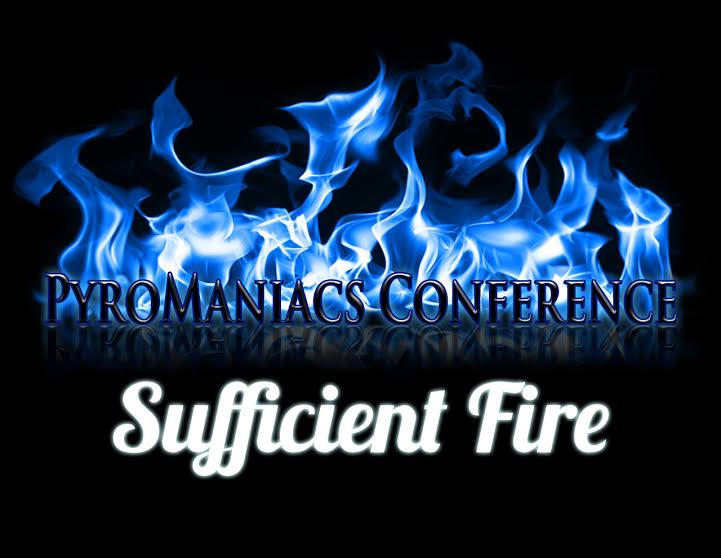All Christians attribute power and authority to God's word, for the simple fact that it is God's word. In his Sufficient Fire talk, Phil Johnson mentioned that Brian Maclaren attempted to make mileage over the fact that 2 Timothy 3:16 said that Scripture was useful, not that it was authoritative. In my later talk I chuckled a bit over that, wondering how much more authoritative you could get than "God-breathed"!
I find John Frame's phrasing of Scripture's authority very helpful and memorable:
[Scripture] imposes on them an obligation to respond in an appropriate way. That is the proper definition of authority: an authoritative word is one that imposes obligations on those who hear. And the word of God imposes an absolute obligation.
[John M. Frame, Systematic Theology: An Introduction to Christian Belief (Phillipsburg, NJ: P&R Publishing, 2013), 529.]There are obvious implications to this. It's easiest to see in the commandments. For instance, when God says not to commit adultery (Exodus 20:14; Ephesians 5:3), I'm to obey by not committing adultery. When God commands that we love Him (Deuteronomy 6:5; Matthew 22:37), we know we are to love God.
But do the narratives obligate me, as well? The Bible begins with a narrative: God creates the universe in six days, and rests on the seventh. Does that narrative obligate me? Or does the narrative of the call of Abram, or the Exodus, or the Passover, or Balaam's loquacious donkey, or Jonah and the big big fish? Or the narratives of Jesus' casting out demons, of His resurrection, and of dead rising in conjunction with that resurrection?
Do these stories obligate me in some way? Is there something I must do, reading them?
One's first thought might be that no moral obligation arises from a story. If so, one's first thought would be mistaken. These aren't newspaper items or oddments in old books. These present themselves to me as God's Word. As such, I am obligated — morally obligated — to believe them. If I disbelieve them, I not only err, I sin.
How so? God tells me they are true, on His honor. Reject the stories, I reject His honor. If that doesn't plunge me into blasphemy, doesn't it bring me right up to the door and knock?
But wait, there's more.
What of the passages that tell me I should fear God (Proverbs 1:7; 1 Peter 2:17), that I should rejoice in the Lord (Philippians 3:3-4), that I should hope (1 Peter 1:13)? Do those obligate me as well? Surely they do.
But wait, there's still more!
This all brings us to the Charismatic issue.
The great achievement of modern Charismaticism is to dupe so many otherwise-fine people into letting Charismatics carve a niche for themselves where they can both promote themselves and avoid all meaningful accountability. Or, put another way, both to canonize and sanctify their personal experiences and claims and to avoid testing of any sort.
One of these ways is that they will ostensibly quote God, some "word from the Lord" — but then, when challenged, hurry to say "That's just for me!"
But is that option open? They have dared to claim to quote God. They have had the breath-taking, astonishing hubris to position themselves as mediators of revelation — claiming that God said words directly to them and them alone, words they now convey to you and to me.
Can that be a private affair? If so, too late now: they've spoken. They've claimed to speak God's words!
So now I am indeed obligated. Their word obligates me. I cannot escape. (Nor can they, though they try.)
 You see, if what they speak is a word of God, I am morally obligated to believe it. It doesn't matter what the content is: a word from God has God's authority, and "an authoritative word is one that imposes obligations on those who hear." Well, I hear. What is my obligation?
You see, if what they speak is a word of God, I am morally obligated to believe it. It doesn't matter what the content is: a word from God has God's authority, and "an authoritative word is one that imposes obligations on those who hear." Well, I hear. What is my obligation?If it is God's word, I am obligated to believe it. And if it is not, I am obligated to rebuke and expose them as false prophets.
I want to be sure you get this. Even if what they say is "God told me personally, 'Hey, buck up, my precious darling cuddly lambie-dear, I just want to cuddle you close in sweet saccharine waves of My unconditional love and approval, and have great plans for you'" — now that they've told me, I'm obliged.
If that's God speaking and I do not believe it, I am sinning.
But if it isn't, and I do? Same result — or, at the very least, I am complicit in enabling another's sin (cf. Ezekiel 3:18).
And so, an open-but-clueless sort is obligated to search out every claim to revelation, and decide whether to embrace and submit to it, or reject and expose it. That means that such poor souls are morally obligated to be constantly directing their attention from inspired, inerrant, sufficient Scripture, to vet and test and decide on every modern claim to quote God. Because if those are words of God, I am obligated to receive and believe them, myself.
Those are our choices. Either reject the movement as a whole and stand on the sufficient Word of God, or devote yourself to constant, daily distraction.
My, that sounds like a clever way to keep Christians off-focus, doesn't it? Devilishly clever!
Claiming to speak for God is a big, big deal, as I argued at length. They want us to forget it, so they can keep the charade going.
But we mustn't forget it. And we mustn't lose focus on God's real, abiding Word.












































